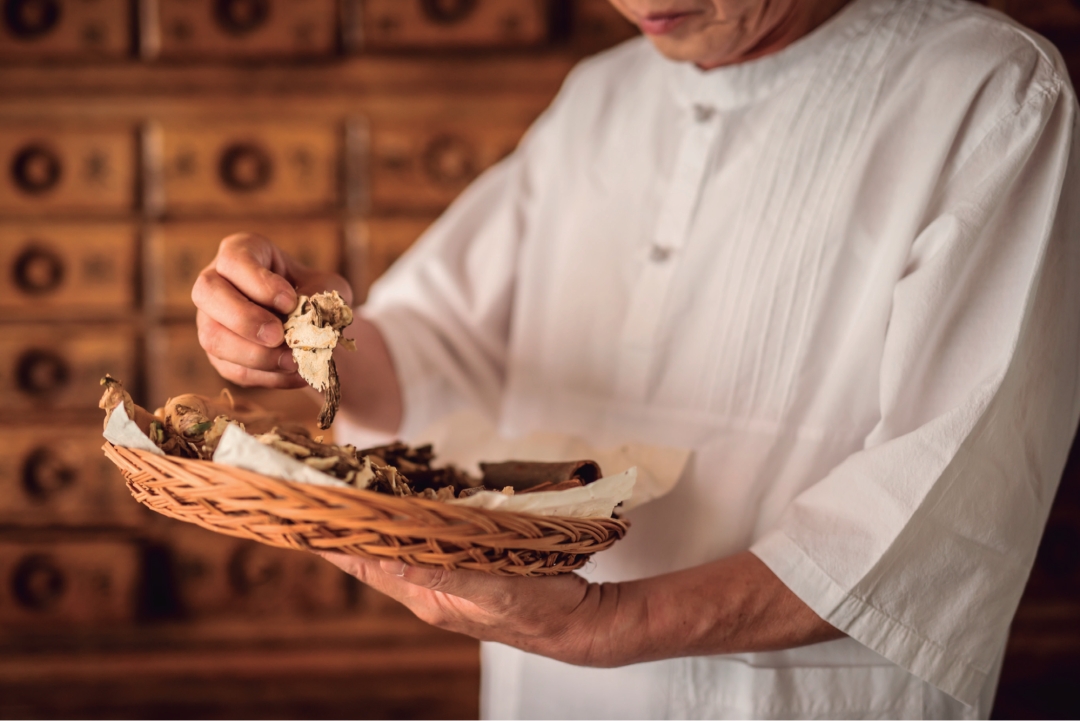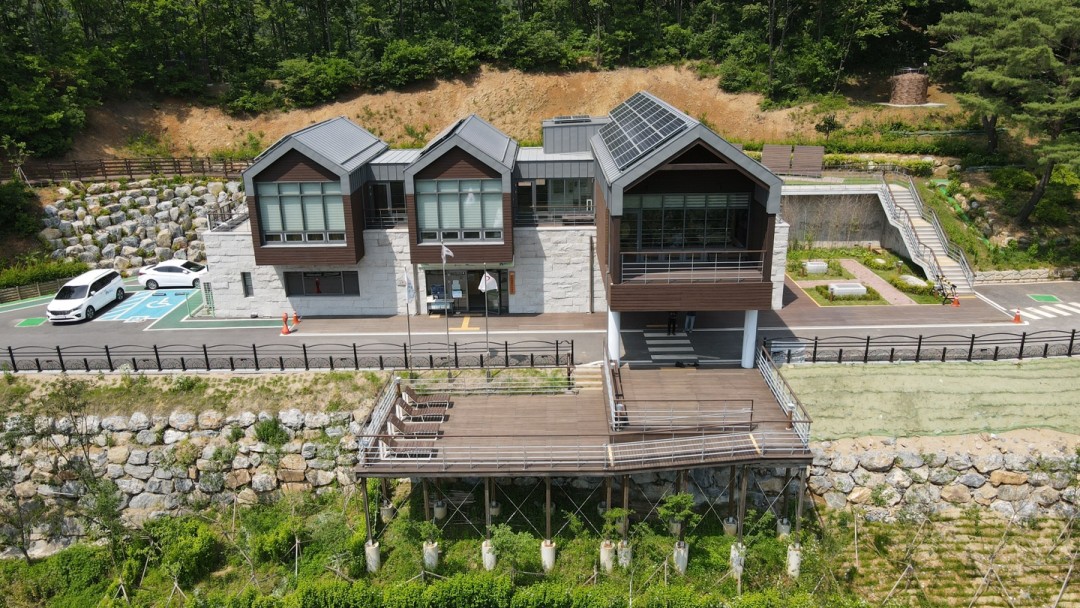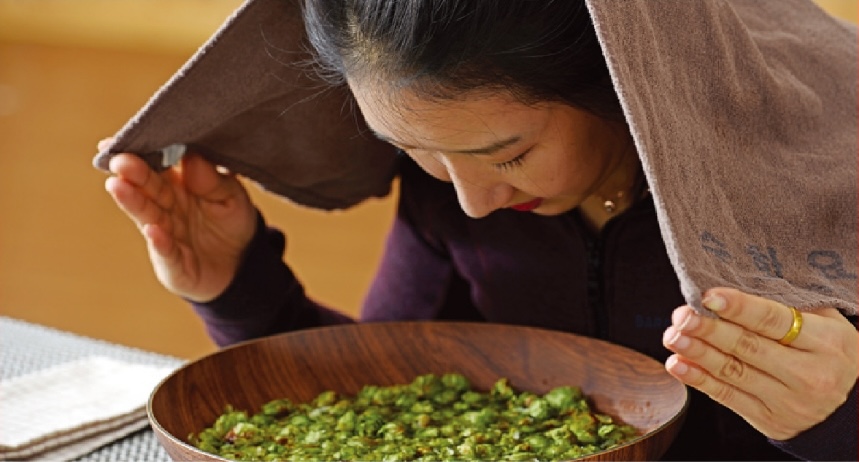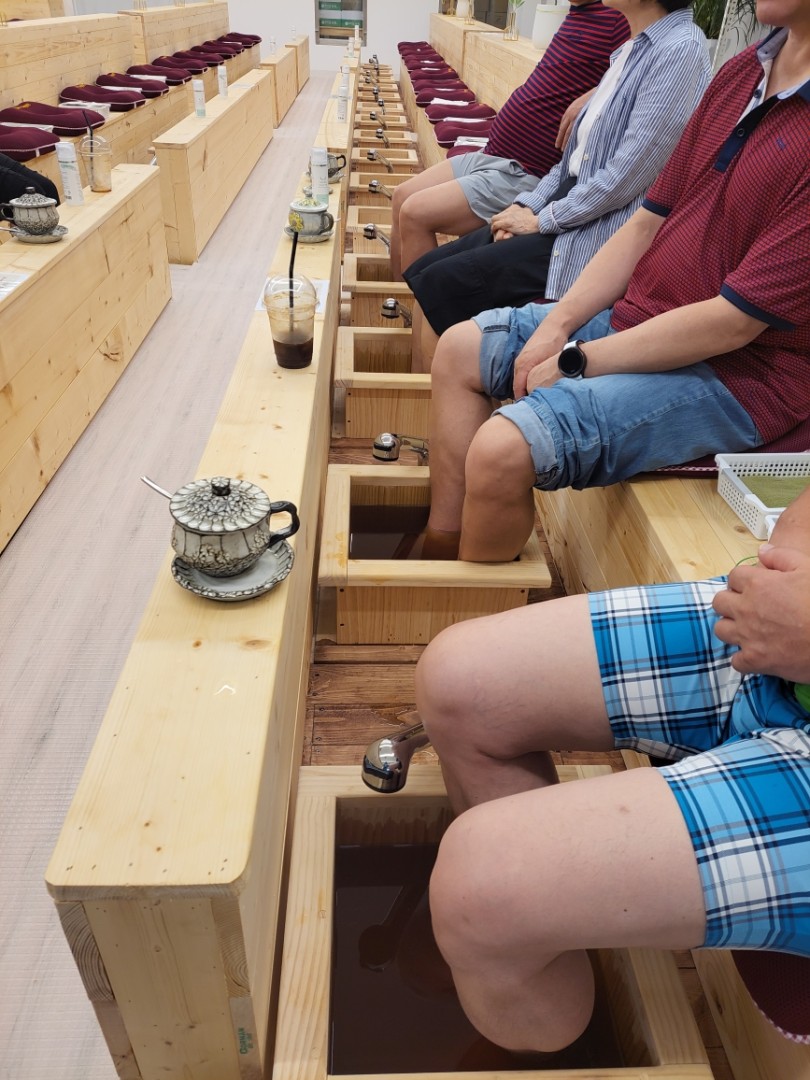South Korea - Jecheon, a mountain city in North Chungcheong Province, is gaining recognition as one of South Korea’s key destinations for traditional medicine and forest-based wellness tourism.
The city’s long association with herbal medicine and its natural environment have positioned it at the center of Korea’s “K-Wellness” initiative — a growing movement that integrates traditional healing, ecological therapy, and sustainable tourism.

Traditional Korean medicine. Chungbuk Innovation Institute of Science & Technology.
A Heritage Rooted in Nature
The world was first introduced to Korean traditional healing through Jewel in the Palace, a television drama that revealed the deep connection between medicine, nature, and philosophy in Korean culture. Today, that legacy continues in Jecheon, where traditional wisdom meets modern applications of health and wellness.
Situated in the cool, forested mountains of Chungbuk, Jecheon has served as a medicinal herb hub since the Joseon Dynasty. It was once among the nation’s three largest herbal markets and remains home to more than 60 varieties of medicinal plants, including astragalus, ginseng, angelica root, and safflower.
With its high altitude, abundant sunshine, and limestone-rich soil, Jecheon provides optimal conditions for cultivating herbal crops. The region currently accounts for about 80 percent of Korea’s astragalus production, according to local data.
For many visitors, Jecheon offers more than scenic tranquility — it provides an opportunity to reconnect with nature’s restorative rhythm and rediscover balance away from urban life.
National Center for Forest Therapy: Integrating Ecology and Medicine

National Center for Forest Therapy Jecheon. National Center for Forest Therapy Jecheon
At the National Center for Forest Therapy Jecheon, the principles of Korean traditional medicine are applied through forest immersion programs that focus on both physical and mental restoration.
The center’s representative outdoor program, Hwalinsimbang Forest Therapy, leads participants along a two-kilometer trail combining deep-breathing, stretching, and meditative chanting inspired by the teachings of Confucian scholar Yi Hwang. The program concludes at a 540-meter-high observation deck overlooking mountain landscapes, offering visitors a moment of calm and clarity.
Indoor programs such as Korean Herbal Tea Therapy introduce Lee Jema’s Sasang constitutional medicine, which classifies individual body types to create personalized herbal tea blends. Participants begin with Jecheon’s famous astragalus tea and complete the session with a formula tailored to their constitution.
Other programs include Yin-Yang Walking Therapy, Diffuser-Making Aroma Therapy, and Wood-Burning Art, each emphasizing local sustainability and natural healing.
Hop-Based Wellness: A New Dimension of Healing

Hop Aroma Therapy at Jecheon Brewery. Jecheon Brewery.
Unique in Korea, the Jecheon Brewery has expanded beyond beverage production to develop hop-based wellness experiences. The brewery cultivates its own hops and uses them in therapeutic programs designed to calm the mind and support physical recovery.
Its Hop Aroma Therapy and Hop Tea Therapy are particularly popular, known for helping relieve sleep disorders, stress, and women’s wellness concerns due to hops’ natural antioxidants and phytoestrogens.
Visitors can also participate in craft beer brewing and beer shampoo making, activities that reinterpret traditional wellness through modern creativity. To accommodate international tourists, the brewery provides brochures in English, Chinese, and Japanese.
Boncho Dadam: Showcasing Korea’s Herbal Craftsmanship

Herbal foot baths at Boncho Dadam. Boncho Dadam.
Another prominent wellness attraction is Boncho Dadam, a local establishment offering herbal spa experiences. Visitors can enjoy foot baths infused with up to 15 types of Korean medicinal herbs, accompanied by teas such as Ssanghwa, jujube, and ginger — all prepared on site.
Highlights include Jecheon’s signature astragalus tea and unique blends that promote relaxation, brightening, and moisturizing effects. Guests often comment on how soft and revitalized their skin feels after the session.
Complementary activities such as perfume-making workshops and tea tastings offer a deeper appreciation of Jecheon’s herbal culture.
Founder Park Hyeon-soo explained, “Jecheon’s high altitude, limestone-rich soil, and cool climate create the perfect environment for cultivating world-class medicinal herbs. Everything we prepare is natural, visible, and trustworthy.”
Jecheon’s Vision as a Global Wellness Destination
From forest therapy and herbal foot baths to hop-based programs and traditional remedies, Jecheon offers a comprehensive wellness ecosystem that reflects Korea’s evolving approach to natural medicine.
According to the Chungbuk Innovation Institute of Science & Technology, Jecheon’s objective is to establish itself as a global model of integrated wellness that combines heritage, environmental sustainability, and modern therapeutic innovation.
As more travelers seek meaningful, health-oriented experiences, Jecheon stands out as a city where ancient traditions and scientific wellness coexist, offering visitors a chance to experience healing through both culture and nature.
More information is available at the Mind Healing Wellness & Medical Program website: http://www.healingyou.co.kr/site/en/index.html.
Sponsored content by Chungbuk Institute of Science & Technology Innovation.
Media Contact
Company Name: Chungbuk Institute of Science & Technology Innovation
Contact Person: Ha-na Kang
Email: Send Email
City: Cheongji-si
State: Chungcheongbuk-do
Country: South Korea
Website: www.healingyou.co.kr/site/en/index.html






